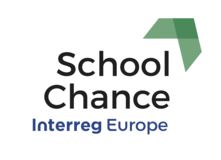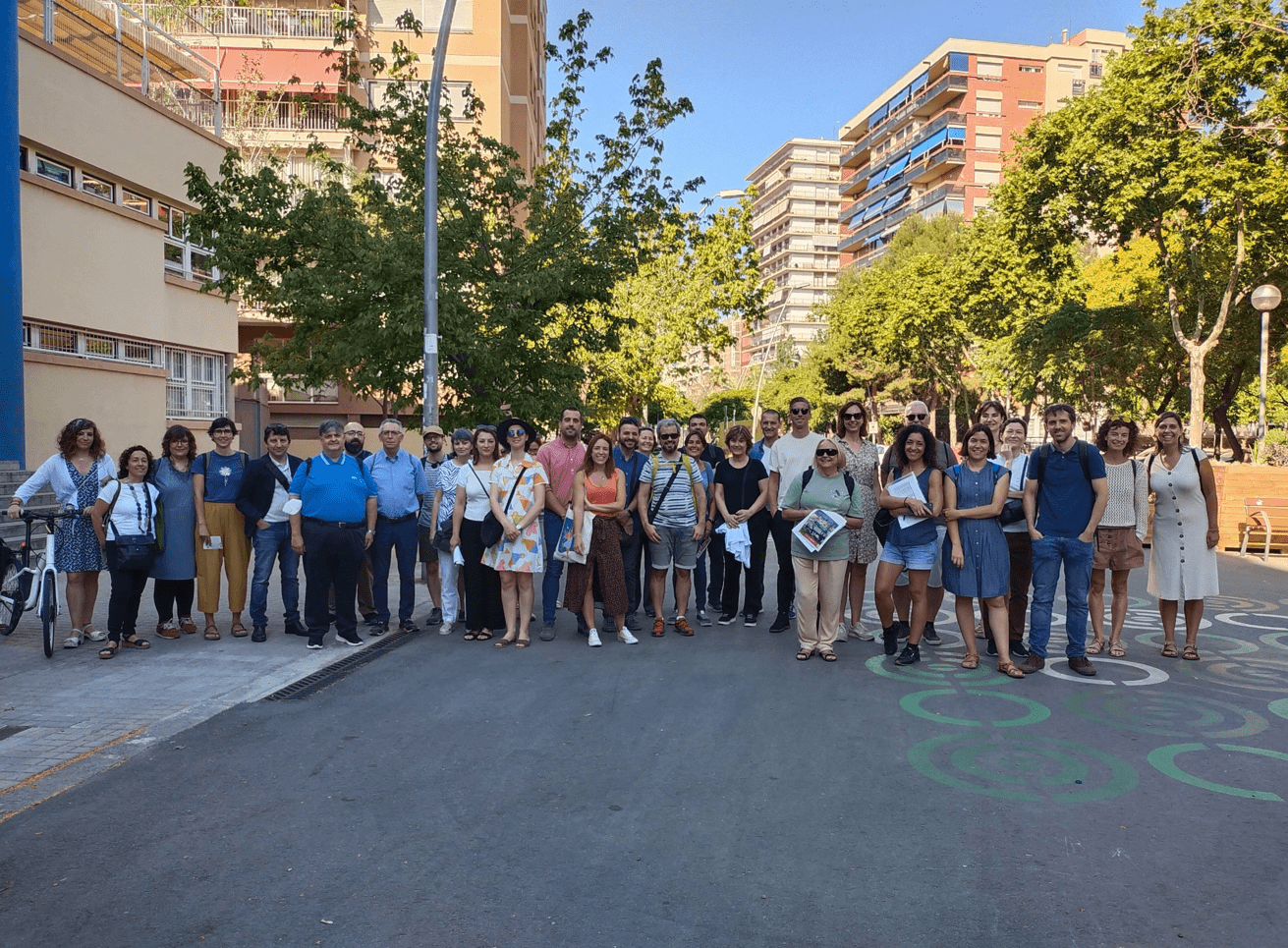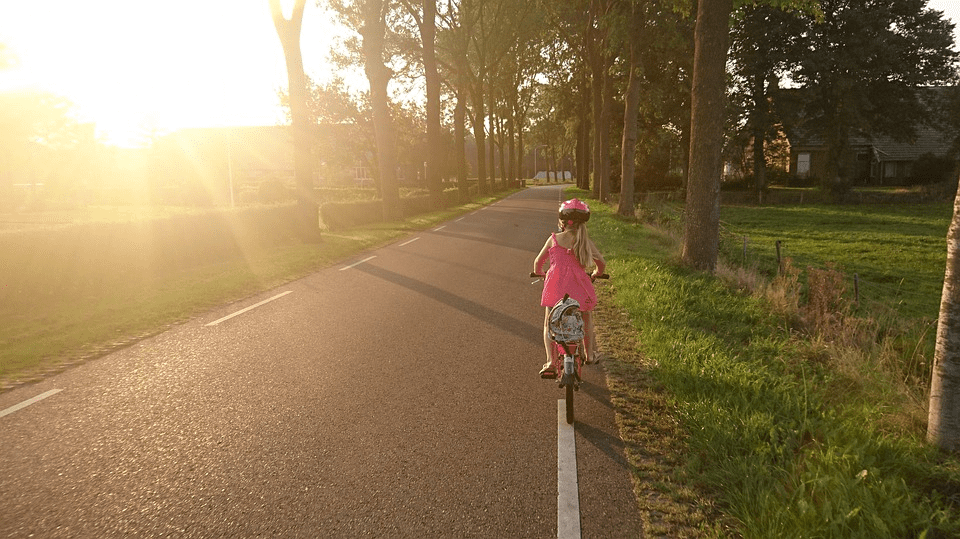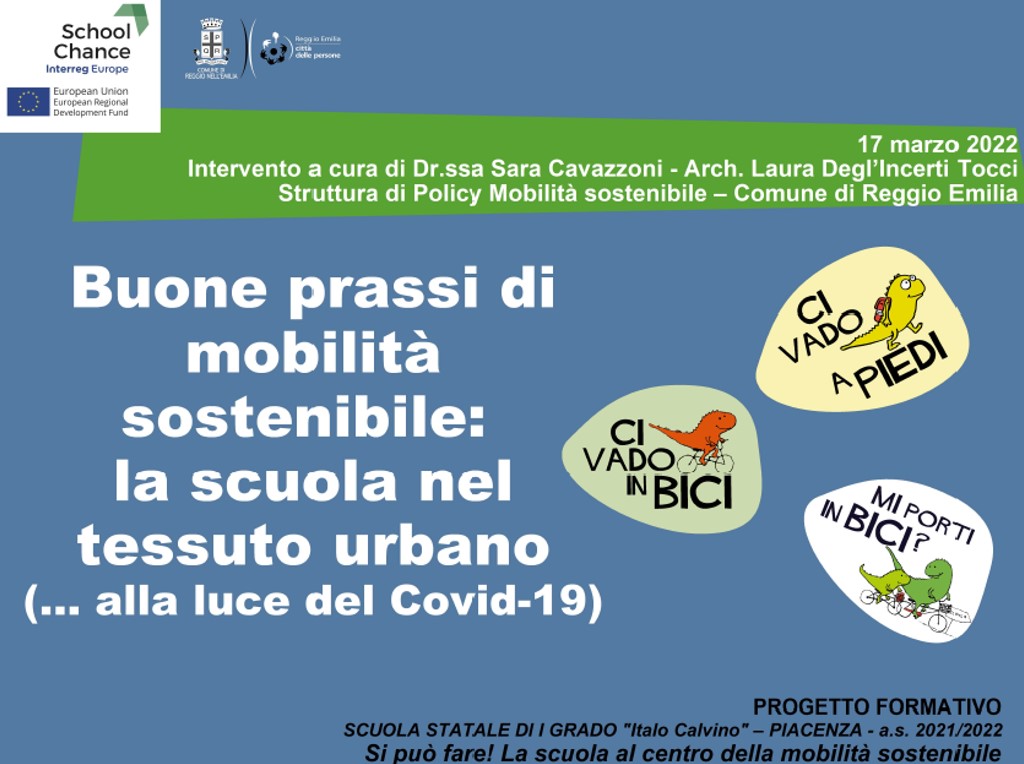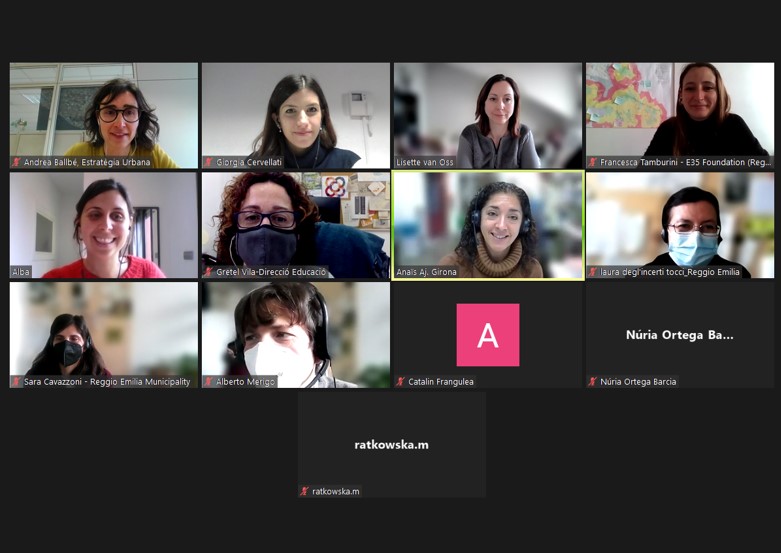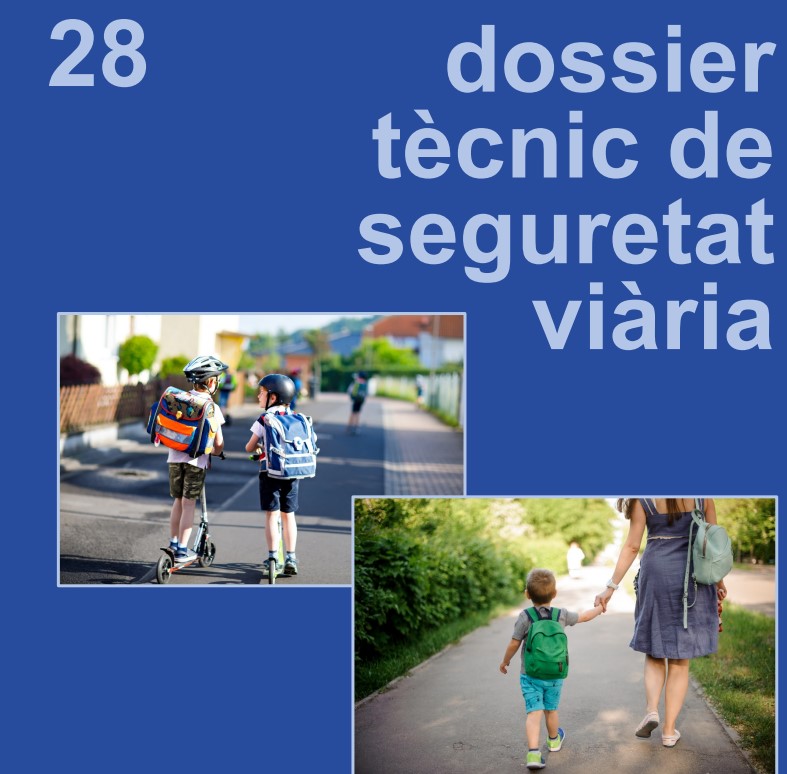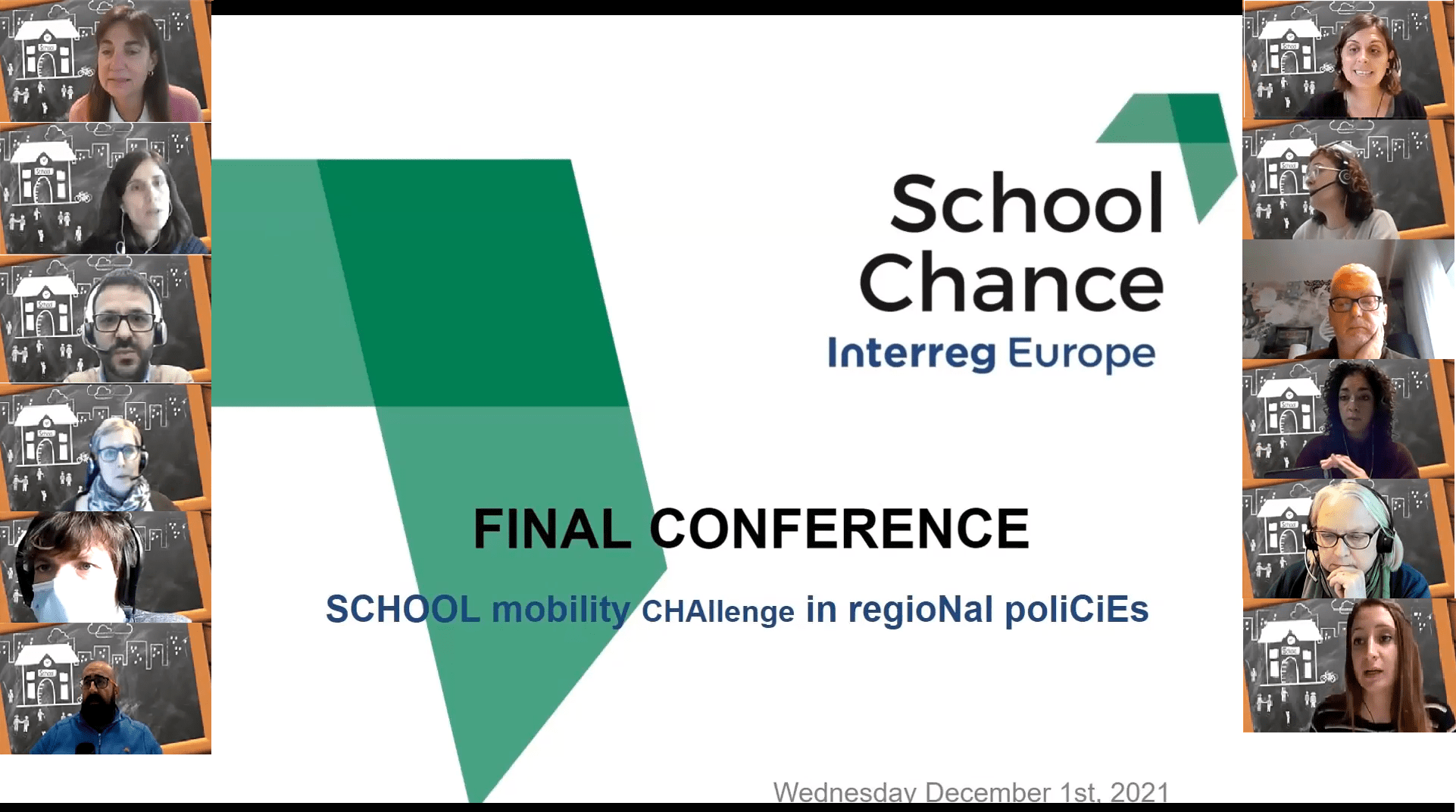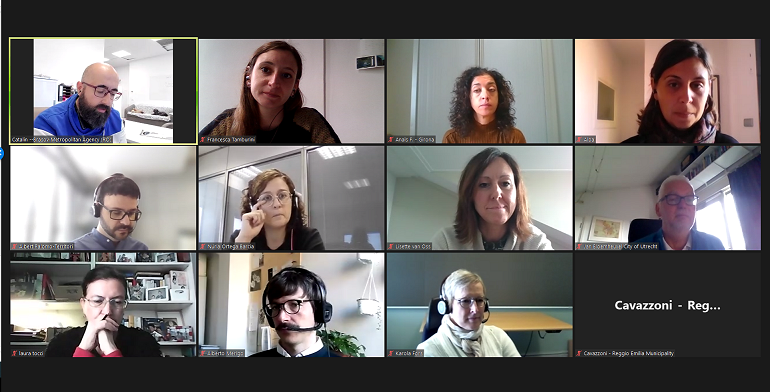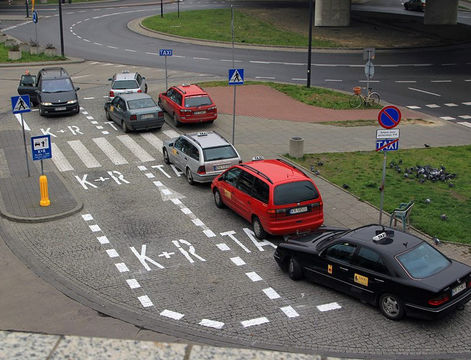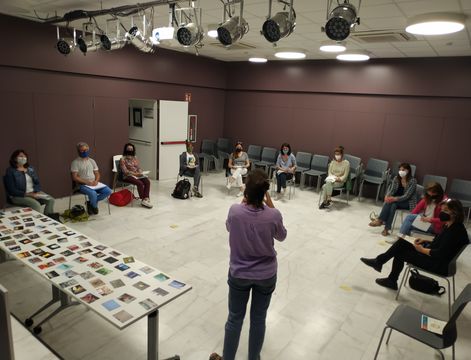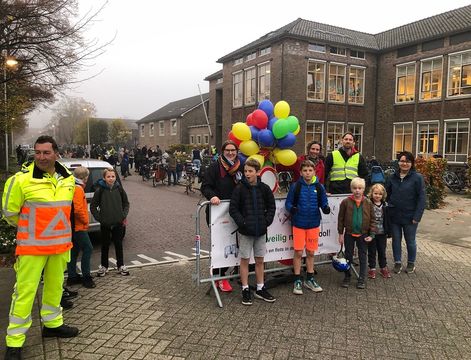The SCHOOL CHANCE Action Plan of Reggio Emilia, whose main objective is to promote and increase the use of sustainable modes of transport in home-to-school trips, is declined into three actions:
1. Schools visibility action aims to develop traffic calming, visibility and signage interventions;
2. The month of active and collective mobility action aims to develop a campaign to communicate, raise awareness and promote the use of active and collective mobility;
3. Communications on school mobility to families' action aims to develop a communication tool to promote active and collective mobility.
The actions were discussed with School Mobility Managers (SMMs) and local stakeholders during LSG meetings and workshops to ensure their full implementation. Covid-19 pandemic had a huge impact on all school activities: in our Region schools closed from the end of February until the end of the school year. This was an unpredictable situation that affected also the implementation of our Action Plan. First of all, it has to be highlighted that the Italian version of the SCHOOL CHANCE Action Plan, together with the elaboration of data collected during the two monitoring sessions, have been formally approved by the City Council in September 2020.
In general, COVID-19 caused a delay in the implementation of the actions, even if the Administration confirmed its commitment in the promotion of sustainable mobility in home-to-school trips.
Concerning action 1, we identified project guidelines to increase the visibility and recognisability of school complexes, enhance the security of public spaces and improve livability and quality of spaces. These matters became more urgent with the pandemic: public spaces, where people can wait the bell ring keeping distance, are now more than needed. By the end of 2020, 11 projects should be financed with internal resources. Probably construction sites will start in 2021. This action will be implemented also in relation to the project recently launched in Reggio Emilia to face COVID-19 restrictions: “scattered school”. The municipality found new spaces in existing buildings (previously used for different purposes) to welcome students and teachers respecting safety distance. Moreover, schools increased and diversified entrances to schools to prevent gatherings. To make these new entrances safe public spaces, we are going to realize temporary projects following the guidelines of School visibility action.
Concerning action 2, we remotely met representatives of the Region to set up a regional campaign to promote the use of active modes of transport in home-to-school trips. Being a regional campaign, it would have been necessary to involve several municipalities, but during summer the municipalities were concentrated to find solutions for the school start in September in compliance with all restriction due to COVID-19. In Reggio Emilia, we launched the “scattered school” project. Thus, the development of a regional campaign has been postponed.
Finally, the third action has been partly adjusted due to the pandemic, which effects impacted even on mobility behavior. Public transport has been particularly affected with the capacity of buses and trains reduced and the perception, by some users, that they might not be safe. Therefore, with the beginning of the new school year, the Administration decided to launch a communication campaign aimed at increasing cycling in order to prevent the collapse of the city road network during the pandemic. The campaign is targeted to pupils and their parents; we have developed 3 main messages:
• “bring me to school on foot” and “bring me to school by bike” for children going to elementary school;
• “I go to school by bike” for boys and girls from 11 to 14 years old; the message is slightly different to promote autonomy in home-to-school trips among children that are allowed to go to school by their own.
A little dragon is the main character of the campaign that will be disseminated through posters on the streets, flyer and other gadgets.


The status of the implementation of the Action Plan and the elaboration of data collected thanks to the questionnaires have been presented in September during a face-to-face meeting with SMMs to assure the importance of these figures especially during this school year. From June to September, we kept informed and communicated with our Local Stakeholder Group, especially with SMMs, with virtual meetings and written communications.
All in all, the city of Reggio Emilia, even with some delay in the implementation, has succeeded in the indispensable adaptation of the SCHOOL CHANCE Action Plan to the COVID-19 pandemic confirming its commitment and efforts to promote an active, safe and autonomous mobility in home-to-school trips.
